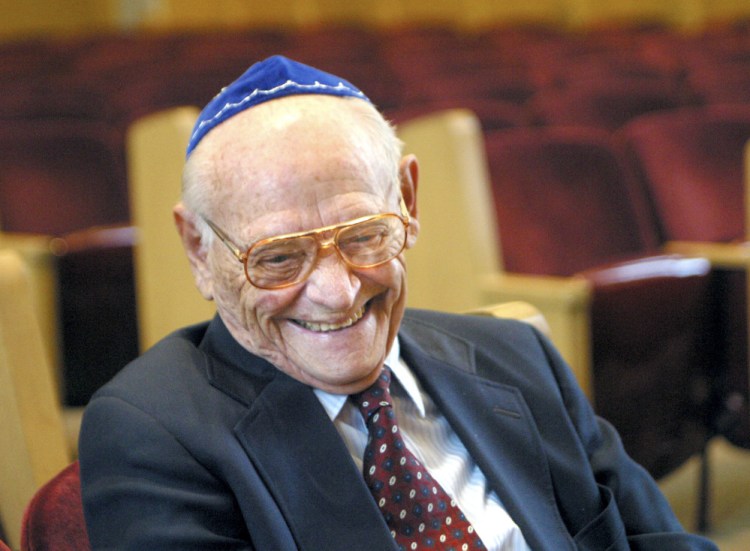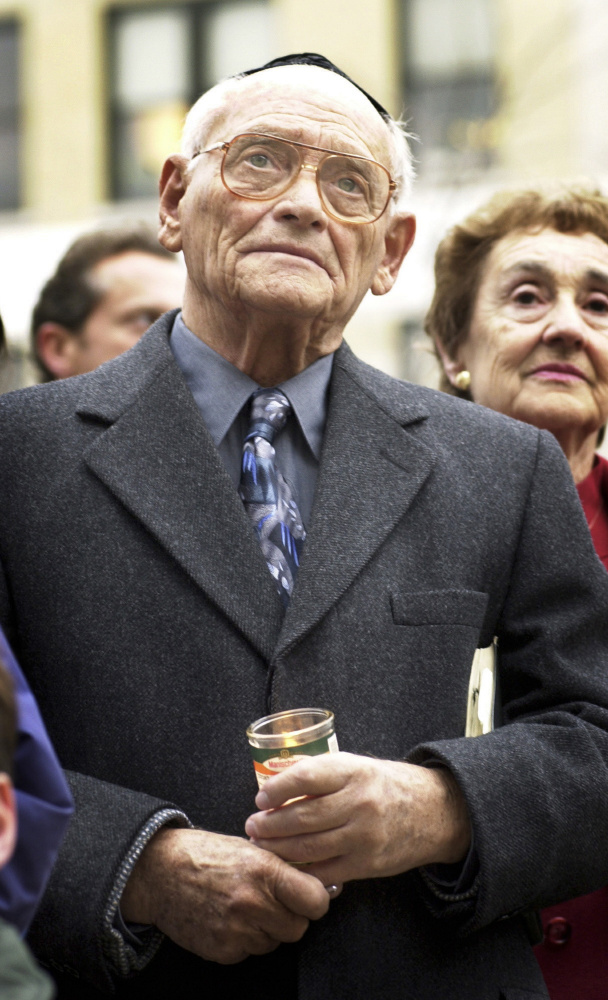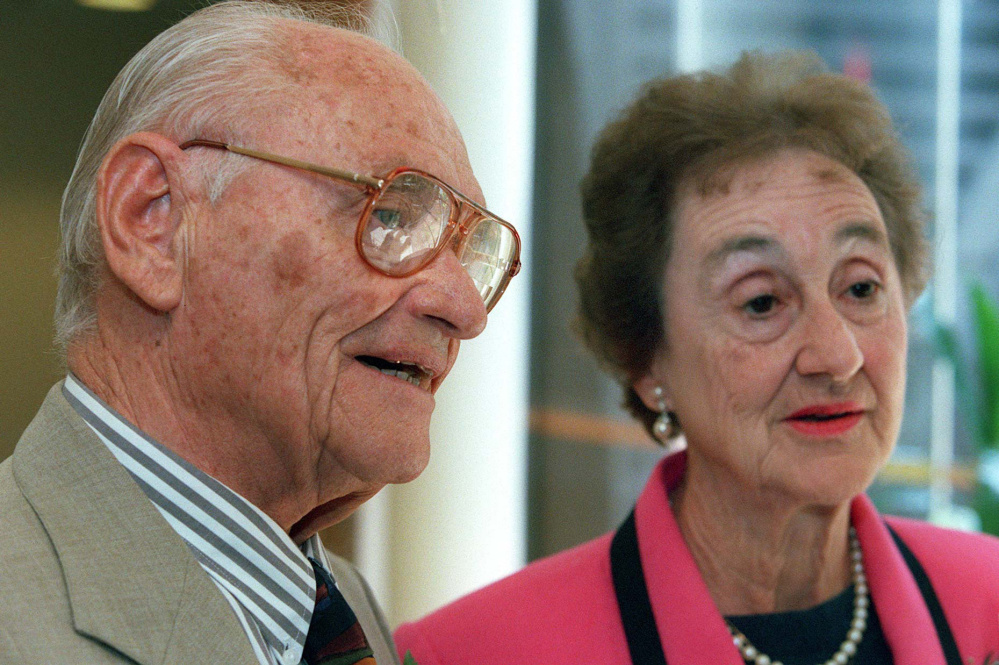Kurt Messerschmidt nearly died in a Nazi concentration camp. He survived by escaping from a forced “death march” as World War II was ending in 1945.
He lived for another 72 years.
A few years after the war ended, Messerschmidt and his wife, Sonja, immigrated to the United States, eventually settling in Portland in 1951.
Messerschmidt, 102, a cantor who led choir groups at Temple Beth El in Portland, died Tuesday at Mercy Hospital.
The harrowing tale of the Messerschmidts’ path to the United States has been told in the Portland Press Herald, in other media and in a book, “Death and Love in the Holocaust.”
“This is really a love story for the ages,” said their son, Michael, shortly after funeral services were held Friday in Portland.
Kurt and Sonja met in the 1930s – he was her teacher – and they were engaged in 1941.
Conditions kept deteriorating for Jews in Adolf Hitler’s Germany, and they were sent to a concentration camp in Czechoslovakia in 1943. They married while they were prisoners there in 1944.
“They were separated by the Nazis shortly after, and each was sent to a succession of concentration camps, including Auschwitz-Birkenau,” according to Messerschmidt’s obituary published on Thursday in the Portland Press Herald.
At Auschwitz, Messerschmidt worked in a quarry, carrying heavy stones. Among the more than 1 million who died at Auschwitz was Kurt’s mother, Else. Music kept him alive, he told the Press Herald for a 2004 article, and he would hum to himself during difficult times.
“I had to keep a separate inner life because they wanted to destroy my humanity,” he said. “But they did not succeed.”
As World War II was winding down, some concentration camp prisoners, including Messerschmidt, were forced to march. Many died during the grueling ordeal. The prisoners who survived were hiding in a pig stall on April 30, 1945, when Messerschmidt took his chance to escape.
At dawn, he walked past a confused Nazi guard, across newly fallen snow and into the nearby woods.
“I don’t know why, but I knew he would not stop me,” Messerschmidt told the Press Herald in 2004.
Perhaps the guard thought he was not one of the prisoners or was drowsy and confused.
“As I passed, I spoke German to him, clearly and precisely, the German of an educated man.”
Shortly after his escape, he discovered a notice posted on a cemetery gate, signed by U.S. Army Gen. Dwight Eisenhower, that American troops occupied the area and were in control.
“At that moment, I knew I was free. I knew I was American,” he told the Press Herald.
But he had not yet found Sonja, who – unknown to him – had also survived the concentration camps.
“Months later, in the chaos of postwar Germany, Kurt found a handwritten note Sonja had left on a bulletin board at a refugee center in Munich, a city neither had ever visited prior to the war. With the assistance of the American military, he secured transportation to find her and reunite,” according to the obituary.
After reuniting, they immigrated to the United States in 1950 and lived in New York City before moving the next year to Portland, where they raised two children, Michael and Eva, and became leaders in the Jewish community.
Michael said that while he was growing up, his parents never talked about their experiences surviving World War II concentration camps.
“Holocaust survivors, as a group, did not talk about their experiences for several decades after the war,” said Michael, of Cape Elizabeth.
As he was leaving for college in the 1970s, his parents told him part of the story, Michael said. Later, they participated in oral histories and filled in the details of their story of survival and triumph.
“Once he opened up, he really opened up,” Michael said of his father. “He had a lot to say.”
Michael said his parents and many Jews who survived the Holocaust wanted to record their stories for history, and that became more important to them as they aged.
Kurt Messerschmidt taught all Temple Beth El music programs for many years, retiring in 1985. He spoke seven languages.
A lifelong musician, Messerschmidt sang and taught music in Munich before coming to the United States. During those times, he realized the power of music to connect with people, he told the Press Herald in the 2004 story.
“I presented the beauty of what they (the Nazis) tried to destroy,” he said.
Joe Lawlor can be contacted at 791-6376 or at:
jlawlor@pressherald.com
Twitter: joelawlorph
Send questions/comments to the editors.





